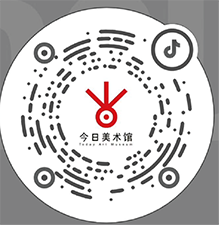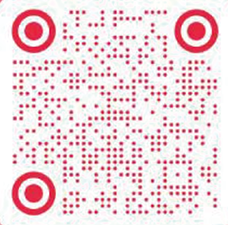Location: 3/F,Building No.1&De cafe
The Academic Symposiums of Pan Gongkai
BackLocation: 3/F,Building No.1&De cafe
Seminar Introduction
Dispersion is a basic concept of modern thermodynamics. It is a description of the flow of heat energy within a closed space. The principle No. 2 of thermodynamics stipulates that heat energy always flows from warmer spot to colder ones. The process is irreversible and leads to the increase of entropy. Within a closed space, where a difference of heat energy levels exists, heat energy tends to spread equally to reach the highest entropy status. And then there is no longer flow of heat energy. This is the process of dispersion.
In his study of the global movement and influence of 20th century culture and art, Pan Gongkai found that the flow of cultural energy follows the principle of dispersion as well. Cultural influence spreads from regions of higher cultural potential energy to ones of lower energy. Such tendency has long appeared in Romanization of ancient Greek art. The advanced information network accelerated such dispersion of culture in the 20th century. As globalization furthers its steps, culture and art disperse rapidly from the central area (in the west) to the peripheral regions, bringing expansion of visual culture and systematic knowledge to every end of the world. In this process, streams of thoughts that were diachronic turn to co-existence of multiple synchronic factors. The accumulation of systematic knowledge further melts and mixes to form the dispersing global landscape of new culture and art, which shows the characteristics of being fragmentized, collage mixed, flattened and popularized.
Cultural dispersion is a positive phenomenon that is inevitable, and unnecessary to avoid, in the context of globalization. It brings the modernization of world culture. All mankind benefits undoubtedly from it. But if we look at it from a larger scale of time and space, the constant seek and construction of certain fusion and negentropy in opposition to the dispersion and high entropy is necessary balancing and complementation.
How new culture and art generate in the cultural context of dispersion is a starting point of Pan Gongkai's art practice and thoughts. The overwhelming power of dispersion makes generation difficult. It makes generation a goal worth pursuing for all the artists that have global vision.
Guest list
Session 1: The Education of Design and Crossover Experiment
Pan Gongkai,Xu Zhongou,Wang Zhong,Wang Jiancheng,Tian Haipeng,Gao Peng,Mao Juncheng
Session 2: The Education of Design and Crossover Experiment
Pan Gongkai,Tan Ping,Lv Jingjing,Song Xiewei,Gao Peng
Session 3: The Multiple Possibilities of Crossover Creation
Du Jian, Gao Peng,Pan Gongkai,Qiao Xiaoguang,Shao Dazhen,Song Xiewei,Sun Jingbo,Tang Yongli,Wang Hongjian,Xue Yongnian,Xu bing,Yi ying,Yuan Yunsheng,Yue jieqiong,Zhang Baowei,Zhong Han,Zhou Zhiyu
Session 4: Art Creation and Crossover Experiment
Pan Gongkai,Xu Bing,Tang Yongli,Su Xinping,Lu Shengzhong,Gao Peng
Session 5: The Multiple Possibilities of Contemporary Vision
Ding Ning,Wang Duanting,Du Xiyuan,Zhang Gan,Yang Wei,Peng Feng,Sheng Wei,Wang Chunchen,Lu Yuan,Yu Ding,Wu Hongliang,Cao Qinghui,Lu Yinghua,Liu Libin,Hu Bin,Yin Shuangxi,Guo Hongmei,Cai Meng,Yu Yang
Session 6: Academic Research and Crossover Experiment
Yin Jinan,Li Jun,Xu Ping,Song Xiaoxia,Gao Peng
Session 7: Modernity and Self-Consciousness
Pan Gongkai,Wang Hui,Lu Jiande,Peng Feng,Shui Zhongtian,Han Bi,Gong Pengcheng,Zhu Qi,Yan Binghui,Wang Yuejin,An Yalan,Shen Kuiyi,Letizia Ragaglia,Michael Kahn-Ackermann,Ji Weihong
Session 8: The Contemporary Expression of Ink and Wash + Crossover Experiment and Space for Space
Pan Gongkai,Han Bi,Yan Binghui,Wang Yuejin,An Yalan,Shen Kuiyi,Letizia Ragaglia,Michael Kahn-Ackermann,Ji Weihong
Session 9: The Association of Young and Middle-aged Teachers Event
Session 10: A Crossover Dialogue between Contemporary Architecture and Contemporary Art
Session 11: International Symposium on Pan Gongkai – Dispersion and Generation
Pan Gongkai,Andrea Bargnani,Wu Hong,Xia Wei,Gao Jianping,Andrea Bargnani,Gao Peng

 Zhiguan: Wang Zimu Art Exhibition
Zhiguan: Wang Zimu Art Exhibition Seasons of Cezanne The Immersive Experience
Seasons of Cezanne The Immersive Experience Marie de Villein: Behind the Sun
Marie de Villein: Behind the Sun “一粒一世界——北京大学颗粒艺术展”
“一粒一世界——北京大学颗粒艺术展”
 Florentijn Hofman :Celebrate!
Florentijn Hofman :Celebrate! Li Nu: As if Sand Were Stone
Li Nu: As if Sand Were Stone Exhibition customization course | TIM YIP MIRROR children's art class
Exhibition customization course | TIM YIP MIRROR children's art class
 TAM Open Studio / Hello, New Friends
TAM Open Studio / Hello, New Friends WANG SHIKUO/TODAY ART MUSEUM YOUNG ARTIST RESIDENCY IN NEW YORK CITY
WANG SHIKUO/TODAY ART MUSEUM YOUNG ARTIST RESIDENCY IN NEW YORK CITY 2018 third wang shikuo award -- nomination exhibition of contemporary young artists
2018 third wang shikuo award -- nomination exhibition of contemporary young artists











